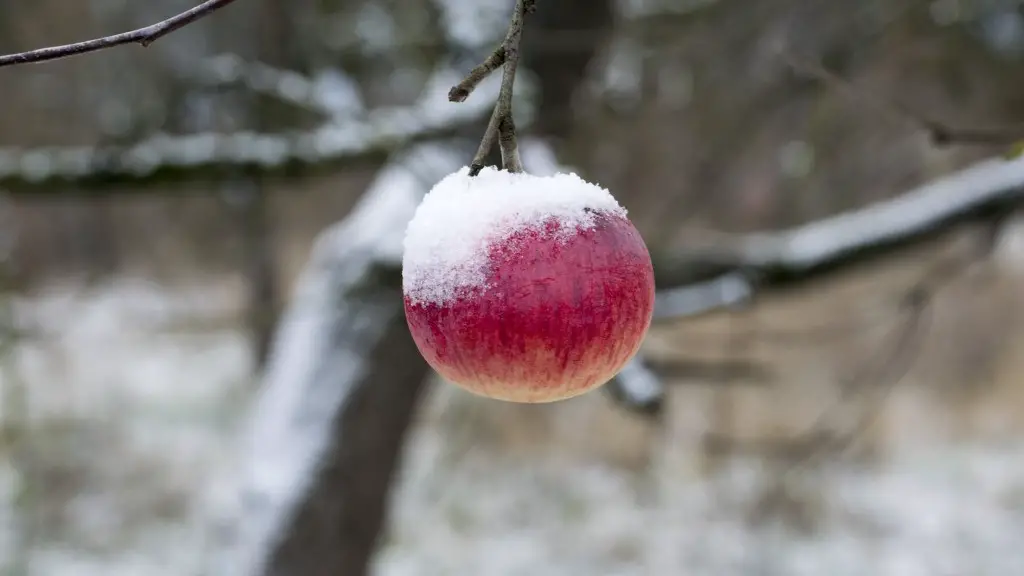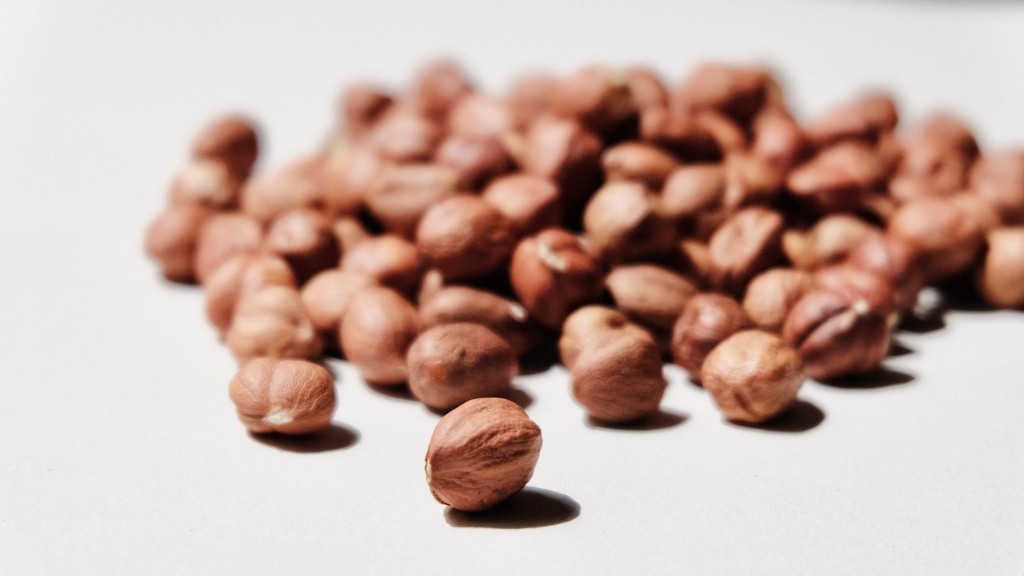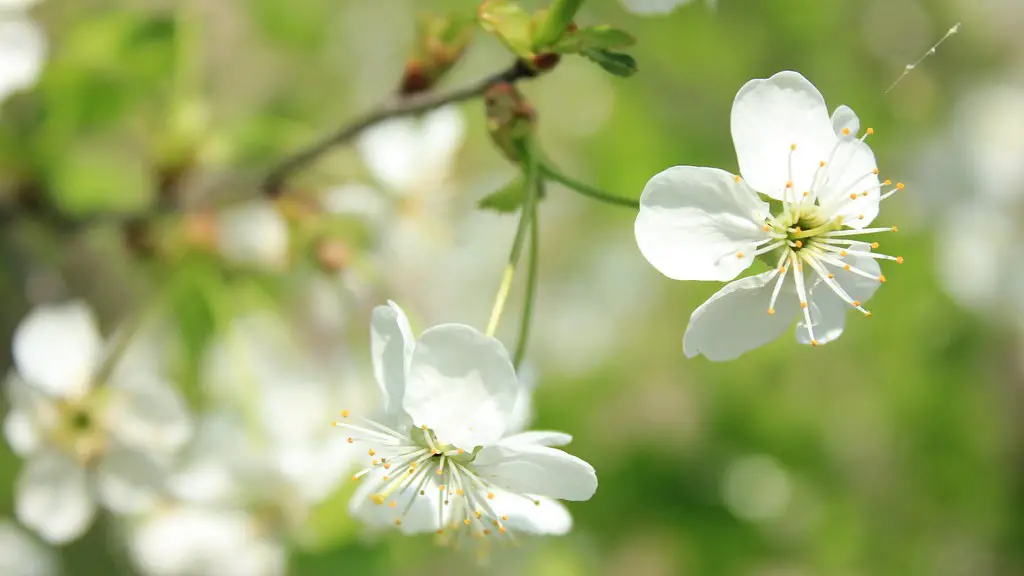Most lemon trees will reach between 6 and 10 feet tall at maturity, although some can grow much taller. Some dwarf varieties of lemon tree are available that only grow to about 3 to 4 feet tall.
Lemon trees can grow to be 20 feet tall.
How much space does a lemon tree need?
The spacing for standard-size citrus trees should be 12 to 25 feet apart, and for dwarf citrus trees, the spacing should be 6 to 10 feet apart. The exact distance depends on the variety. The bigger the fruit, the farther the distance.
Pruning is a great way to keep your lemon tree the size you want it to be. By making a cut at an angle on a branch above two healthy leaves, you can keep your lemon tree from getting too tall.
How quickly do lemon trees grow
Lemon trees are relatively fast growers, and can reach heights of 6-12 inches per year under good conditions. Seedlings are especially vigorous, and can sprout an inch per month during the growing season. However, it typically takes about 7 years for a seedling tree to bear fruit.
Meyer lemon trees are a type of citrus tree that can grow to be 6-10 feet tall. The dwarf variety of Meyer lemon tree only grows to be 5-7 feet tall, making it ideal for small gardens or as an accent in a room with limited space. Meyer lemon trees bloom in the fall or early spring, and their fragrant white blossoms make them a popular choice for home landscaping.
Are lemon trees high maintenance?
Lemon trees are a great low-maintenance plant! They require full sun, which means about 6 to 8 hours of direct sunlight daily. For indoor growth, simply place them in front of a south-facing or sunny window.
Citrus trees enjoy warm weather and plenty of sunlight, so a south-facing bed is ideal. If you can, position the tree near your house or garage for added protection from the cold. Just be sure to give the tree enough space to grow—it will need at least 6-8 feet of clearance from any structures or hard surfaces.
Can lemon trees grow in pots?
A potted lemon tree is a great way to enjoy fresh lemons all year long, even in cooler weather. These trees are self-pollinating, so only one is needed to produce fruit. Place the tree in a sunny spot indoors and water regularly to keep the soil moist but not soggy. With a little care, your lemon tree will thrive and provide you with delicious, healthy lemons for many years to come.
Lemon trees are a popular choice for many homeowners due to their hardiness and easy maintenance. When grown outdoors in warm climates, regular lemon trees can grow up to 20 feet tall and take six years to bear fruit. Homeowners in cooler climates can also grow lemon trees, but they may need to provide additional care, such as growing the tree in a pot indoors or in a greenhouse.
What are three common problems that lemon trees can have
A lemon tree can be a beautiful addition to any home. But like all trees, they can suffer from a range of problems. The seven most common problems are:
1. Lesions on leaves – caused by citrus canker, these black, moldy spots can spread quickly and kill the tree if left untreated.
2. Black moldy spots – sooty mold is often caused by aphids and can cause the leaves to turn black and fuzzy.
3. Fuzzy gray mold and brown spots – botrytis blight can cause the leaves and fruit to rot.
4. Tan spots with dark outlines – anthracnose can cause the leaves and fruit to brown and discolor.
5. Brown scabs – lemon scab can cause the fruit to become hard and brown.
6. Cracks in the bark – this is usually caused by changes in temperature and can be a serious problem if left untreated.
7. Yellowing leaves – this is usually caused by a lack of nutrients and can be corrected with fertilizer.
If you notice any of these problems with your lemon tree, act quickly to treat it. With proper care, your lemon tree will thrive for years to come.
Citric acid can be toxic to dogs if consumed in large quantities. Symptoms of citric acid toxicity include GI upset and central nervous system depression. If your dog ingests a large quantity of citric acid, immediately contact your veterinarian.
Where is the best place to plant a lemon tree?
Lemon trees need full sun to produce lots of fruit. Plant your lemon tree in an area of your yard that gets plenty of sun exposure. Keep the tree away from buildings and other trees, as shading can impact its growth and fruit production.
Lemon trees are best suited for grow in tropical regions. If you live in an area where the temperature drops below 50 degrees, it is best to plant your lemon tree in a large pot and keep it in a bright location inside your home, like a sunroom or next to a window.
Do lemon trees grow better in pots or ground
Lemon trees are a popular choice for home gardens, but there are a few things to keep in mind when growing them in containers. One issue is that they are more vulnerable to the cold and drought. While a lemon tree in the ground can take mild frost and cold, a lemon tree in a container cannot. A lemon tree in a container has a hardiness zone that is one zone higher than the USDA recommended zone. Because of this, it is important to protect your lemon tree from the cold by placing it in a sheltered spot or bringing it indoors during the winter months. Another issue to consider is that lemon trees in containers will need more frequent watering than those in the ground. Be sure to check the soil regularly and water as needed to keep the soil moist but not soggy. With a little extra care, you can successfully grow a lemon tree in a container and enjoy the delicious fruit for years to come.
Lemon trees need lots of sunlight in order to produce fruit, so a south-facing window is the best place for them. If you don’t have enough light in your home, you can supplement with a grow light.
How tall is a 2 year old lemon tree?
This Meyer lemon tree is appropriate for a 2-3 year old and is 2-3 ft tall. It is a great gift for the lemon lover in your life!
Citrus trees are very sensitive to cold weather and can be easily damaged by frost. If the temperature in your area is below 32°F, it is best to keep your tree inside to protect it from the cold. Once the last spring frost has passed and the average nightly temperature is above 40°F, you can then prepare to move your citrus tree outside.
Should I water my lemon tree everyday
Most lemon tree growers need to water their potted plant once every 3-7 days. This can change depending on the size of the plant, the temperature and the humidity.
Having a lemon tree in the house is considered beneficial according to Hinduism and Vastu. It is believed that the lemon tree will keep negative energy out of the house and also eliminate any Vastu dosh.
Warp Up
The average height of a lemon tree is between 15 and 20 feet. Some lemon trees can grow up to 30 feet tall.
While lemon trees can vary in size, they typically grow to be between 6 and 10 feet tall.




